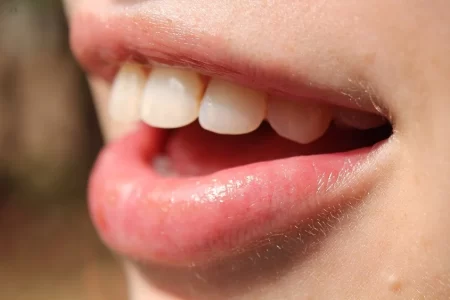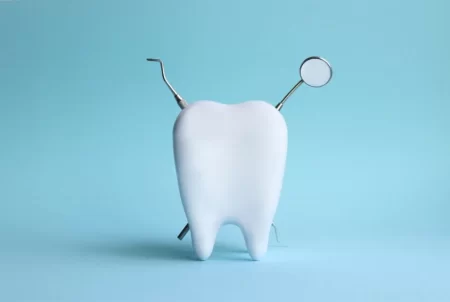Dental Filling
A dental filling commonly treats cavities. Cavities are areas of decaying tooth which have small holes. Dental filling involves the filling of small holes with a particular substance such as amalgam or composite. It is a simple and routine procedure, but some people may experience tooth sensitivity after their dental filling.
How Does it Feel After a Dental Filling?
Before starting the filling process, your doctor may numb the area around the affected tooth. As a result, you may not feel anything even after 2 hours of the procedure. When the numbness goes away, you may feel unusual sensations in your mouth.
You may feel the following sensations:
- You may feel pain in the teeth while breathing in cold air while drinking hot or cold liquids and eating hot or cold foods.
- Tenderness in your gums.
- Constant pain in the surrounding teeth after dental filling.
- Pain experienced while eating, brushing, or flossing in the affected tooth.
Do Dental Fillings Deteriorate?
Constant pressure due to chewing, grinding, or clenching can lead to wearing, chipping, or cracks in the dental fillings. You may not be able to identify such signs, but your doctor can easily identify these restorations during a regular check-up.
If the cap between the tooth enamel and dental filling gets damaged, food particles and decay-causing bacteria can easily enter through it. They can cause decay in the surrounding tooth. If the tooth decay is not treated timely, it can infect the pulp and lead to an abscessed tooth.
If you have a large dental filling or experience an extensive recurrent decay in your affected tooth, there won’t be any remaining tooth structure available for a replacement filling. In such a situation, your doctor may replace your tooth with a crown.
New filling that falls out early occurs due to improper cavity preparations, contamination of preparation before placement of a restoration, or a fracture of restoration from a bite or chewing trauma. Older restorations are lost due to decay or fracture in the remaining tooth.
Read About What Leads to Tooth Sensitivity?
Tooth Sensitivity After Dental Filling
Tooth sensitivities are very common after a dental filling. A tooth may be sensitive to pressure, air, sweet foods, or temperature. You may become sensitive to cold or hot foods after dental filling. You can avoid certain foods and drinks for some time after getting a dental filling done.
How Long Does Tooth Sensitivity Last?
In most cases, tooth sensitivity after filling may last for a few days or several weeks. It depends upon the cause of the occurrence of dental cavities. Generally, sensitivity lasts for two to four weeks. If it persists after four weeks or sensitivity may occur after months from filling, you should contact your dentist for its treatment. If you experience extreme sensitivity after filling dental cavities, you should visit a doctor urgently.
Causes of Tooth Sensitivity After Filling
Several factors can cause tooth sensitivity after dental filling. These include:
Pulpitis
Before filling the dental cavities, your doctor may remove the decayed part of your tooth with a drill that releases heat. In rare cases, this heat leads to pulp inflammation, which is a connective tissue that forms the center of the tooth. This leads to pulpitis.
If your dentist does not remove decayed tissue, it can lead to an infection in the pulp in your affected tooth. An infection in the pulp is observed as swelling gums or a pocket of pus near the tooth.
If the pulpitis does not go away in a few days, then you may require a root canal for its treatment.
Pulpitis is classified into two classes:
Reversible Pulpitis
Reversible pulpitis involves the presence of a sensitive tooth. The pulp will heal and get better on its own. No medical assistance is required for its treatment.
Irreversible Pulpitis
Irreversible pulpitis does not allow the tooth’s healing on its own rather, the individual may undergo a root canal for its cure.
Change in Bite
Sometimes, a filling can make a tooth taller compared to the surrounding teeth. This can cause pain while closing your mouth, as you may put extra pressure on the affected tooth. In certain cases, pressure can also crack down the filling.
A change in bite is a very common sensitivity experienced by people after the filing of dental cavities. You may feel a problem in your bite only when the numbness goes off. If you experience such a problem in your bit after dental filling, you should urgently visit your doctor or dentist. He/ she will adjust your teeth in such a way to match it with the surrounding teeth.
Multiple Tooth Surfaces
You may feel pain and sensitivity due to the presence of two different surfaces in your mouth. For example: if one tooth has a gold crown and its adjacent teeth have a silver filling, you may feel an odd sensation when you touch.
Referred Pain
After dental filing, it is common to feel pain around the affected tooth. This is known as referred pain. It mainly involves pain in the surrounding area of the affected tooth.
Allergic Reaction
Some people may be allergic to materials that are used for filling dental cavities. This can lead to an allergic reaction leading to skin rashes or itching in the surrounding area. If you experience certain symptoms of an allergic reaction, you should contact your doctor on a priority basis. The doctor may redo the dental filling with another substance.
Very few people may experience an allergic reaction due to silver filling. In amalgam restorations, people may be allergic to mercury or some other metal present in it. People who suffer from amalgam allergy may have a family history of allergies to metals. Once an amalgam allergy is recognized, dental cavities can be filled using another restorative substance.
Root Canal Infection
Sometimes, tooth sensitivities can occur due to serious dental damage such as nerve damage or root canal infection. Root canal infections occur when bacteria infect the pulp tissues, nerves and blood vessels of the teeth. It can be diagnosed by a dentist and can take necessary steps to restore oral health.
Read About:
What are the Treatment Options of Tooth Sensitivity?
How to Ease Tooth Sensitivity Naturally?
Management of Tooth Sensitivity
You can take the following steps to reduce your sensitivity which arouses after a dental filling:
- You can consume certain non-steroidal anti-inflammatory drugs (NSAIDs), such as ibuprofen.
- You can temporarily avoid cold or hot foods.
- You can temporarily avoid cold or hot drinks.
- You can temporarily avoid acidic foods and drinks such as citrus fruits, wine, and yogurt.
- You should gently brush and floss your teeth for a few days after dental filling.
- You can try a desensitizing toothpaste.
- You can apply a desensitizing agent to your affected tooth.
- For a few days, you can chew food from another side of your mouth rather than the affected area.
In rare cases, if sensitivity is not reduced by carrying out some simple home remedies, the doctor may recommend a root canal to cure it.






